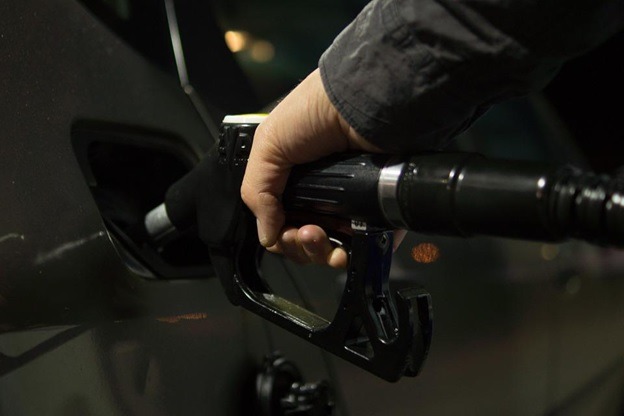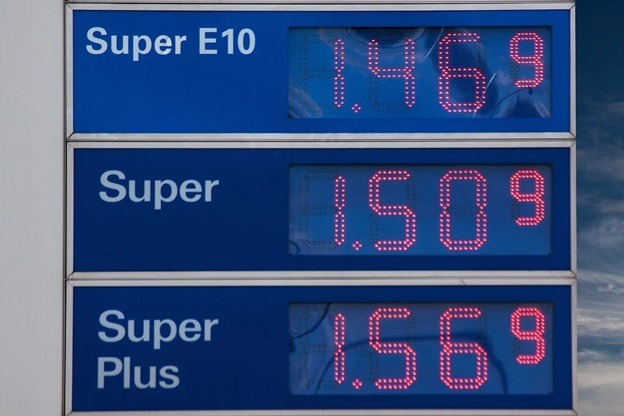Whenever you drive up to the gas station, no matter how much money you earn, you feel the pinch. California is feeling it too! Gas prices have almost reached $6 per gallon in some states, and it is not just there.
The economy is struggling across the country. Gas prices are also quite steep in Nevada and Hawaii. There is a great deal of interest right now in obtaining better gas mileage. How should it be done, though?
Accelerate and Decelerate Carefully
As you accelerate faster, you waste more fuel because you are putting the gas pedal to the metal. Save gas by showing a little TLC while accelerating. The accelerator pedal can be gently stepped on while driving in the city to save fuel.
Getting your vehicle up to 15 mph in five seconds is the best way to save fuel. Think about your dashboard having a cup of coffee. Be careful not to spill it when you accelerate. Gas mileage can be increased by 10%-40% if you lose your lead foot.
The more you slam your brakes, the less forward momentum you have. Check out how traffic is acting around you. Check out how traffic is acting around you. Steering instead of slamming on the brakes will save you fuel and money.
As soon as you get to a traffic light or stop at a light, take your foot off of the accelerator. During your driving lessons, this is driving 101. Drive smoothly and gently when the traffic moves, or the light turns green.
Avoid Idling
People have the misconception that gas is not expended when they sit in their parked cars. The answer is yes! The vehicle consumes less gasoline than driving, but it still uses fuel. It is best to turn off your engine if you are planning to park for a long time. Click here to read more about the rising gas prices.
Keep Your Speed Up
Driving at an inconsistent speed, i.e., dips and surges, will consume more fuel. Your vehicle will wear out much faster due to this. There is something exciting about accelerating suddenly. You will also consume the most fuel when your car is at its highest speed. If you are not in an emergency, driving more carefully is not a problem. You will both benefit from it, as well as your wallet.
If you accelerate quickly, you stop quickly, so you lose more speed when you slow down and have to make it up when you regain cruising speed. A red light should not be sped up. Your momentum will be lost if you stop before the light turns green. Therefore, more gas will be consumed as you have to make up more speed.
Do not Get to Fast
You will not get better mileage by speeding up, as we have repeatedly stated. By maintaining an optimum speed (that does not go too fast, but does not go too slow), you will make the car run more efficiently, using less energy.
Increasing speed causes air resistance, which requires the engine to expend more power to overcome, which in turn consumes more fuel. A happy medium speed is generally considered to be fifty-five miles per hour, slightly slower than the usual highway speed.
Do not Brake for No Reason
The impact of braking suddenly on your mileage is one of the more damaging factors we have discussed thus far. The other end will only accelerate more due to this. Stopping a 3,000-plus pound vehicle from cruising speeds takes a great deal of energy compared to stopping while at cruising speeds.
You should coast when you are in traffic, especially if there is heavy traffic. In case you do not get any further ahead, it is no use pressing up against the car ahead. Your car’s components and fuel economy will benefit from maintaining a slow speed. Also, it may assist in reducing the frequency of stop-start-stop traffic patterns.
Use Cruise Control When Possible
Driving on the highway with cruise control ensures that the speed remains constant and will help you save gas. You will be able to reduce the number of times your vehicle slows down and accelerates while on the road by setting your car on cruise control.
You can save gas by using the cruise control if you drive mainly on level surfaces. Maintain an average speed, however, if the road features many difficulties. Then, when descending, let your car go at a similar speed. You can find a variety of cars that offer cruise control at Action Hyundai if you are shopping for a car with this feature.
Maintain Proper Tire Pressure
Maintaining your tires’ inflated pressure within a few pounds of their recommended pressure is paramount to safety, but also for fuel economy. Rolling resistance increases when the tires are low on air, which makes the car work harder to move forward. Even though four tires and miles may not seem like a significant savings, they can certainly add up.
The air pressure inside your tire is also affected by changes in external pressure. It is essential to keep an eye on your tire pressure as the weather cools because the pounds per square inch in the tire drop.
Get The Good Gas
Gas of the highest quality is worth the investment. Chevron, Mobil, and Shell are among the gas station brands that voluntarily participate in the program. Top Tier gas is not available from many well-known brands. Engines run more efficiently and smoothly when the gas contains detergent additives. Over the course of 5,000 miles, a AAA study found that Top Tier gas removes up to 72% of intake valve deposits.
Have Your Car Maintenance Regularly
It is beneficial for your vehicle’s engine as well as its fuel efficiency to have regular service performed. A smoothly running engine depends on all its components functioning properly. Your car consumes less gas when it runs smoothly. Maintain your car with a maintenance checklist. Visit www.buzzfeed.com to learn more tips for saving gas.



